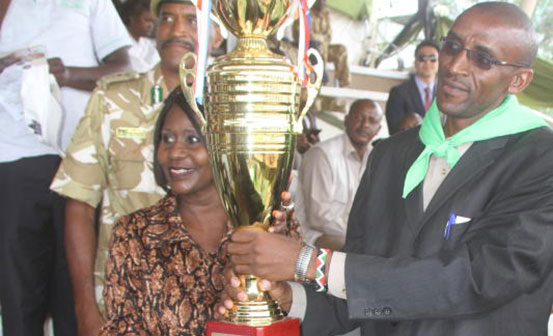×
The Standard e-Paper
Smart Minds Choose Us

Environment CS Judi Wakhungu gives a trophy to David Wanyaga, patron of the environmental club of Umoja Primary School in Nakuru. [Photo: Moses Kipsang/Standard]
Conservationists and stakeholders have raised concerns over the increasing cases of human-wildlife conflicts in several parts of Kenya, because of the drought.